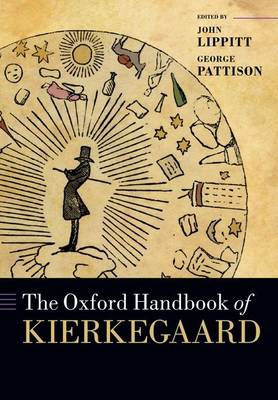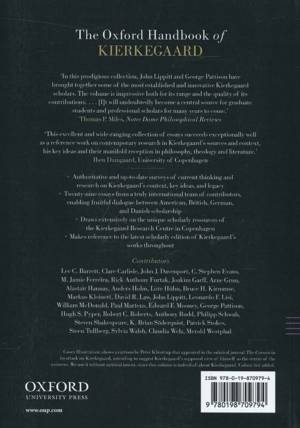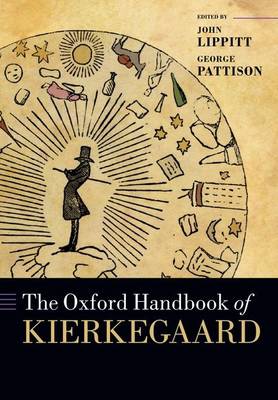
- Afhalen na 1 uur in een winkel met voorraad
- Gratis thuislevering in België vanaf € 30
- Ruim aanbod met 7 miljoen producten
- Afhalen na 1 uur in een winkel met voorraad
- Gratis thuislevering in België vanaf € 30
- Ruim aanbod met 7 miljoen producten
Zoeken


Omschrijving
The Oxford Handbook of Kierkegaard brings together some of the most distinguished contemporary contributors to Kierkegaard research together with some of the more gifted younger commentators on Kierkegaard's work. There is significant input from scholars based in Copenhagen's Soren Kierkegaard Research Centre, as well as from philosophers and theologians from Britain, Germany, and the United States. Part 1 presents some of the philological, historical and contextual work that has been produced in recent years, establishing a firm basis for the more interpretative essays found in following parts. This includes looking at the history of his published and unpublished works, his cultural and social context, and his relation to Romanticism, German Idealism, the Church, the Bible, and theological traditions. Part 2 moves from context and background to the exposition of some of the key ideas and issues in Kierkegaard's writings. Attention is paid to his style, his treatment of ethics,
culture, society, the self, time, theology, love, irony, and death. Part 3 looks at the impact of Kierkegaard's thought and at how it continues to influence philosophy, theology, and literature. After an examination of issues around translating Kierkegaard, this section includes comparisons with Nietzsche, Heidegger, and Wittgenstein, as well as examining his role in modern theology, moral theology, phenomenology, postmodernism, and literature.
culture, society, the self, time, theology, love, irony, and death. Part 3 looks at the impact of Kierkegaard's thought and at how it continues to influence philosophy, theology, and literature. After an examination of issues around translating Kierkegaard, this section includes comparisons with Nietzsche, Heidegger, and Wittgenstein, as well as examining his role in modern theology, moral theology, phenomenology, postmodernism, and literature.
Specificaties
Betrokkenen
- Auteur(s):
- Uitgeverij:
Inhoud
- Aantal bladzijden:
- 640
- Taal:
- Engels
- Reeks:
Eigenschappen
- Productcode (EAN):
- 9780198709794
- Verschijningsdatum:
- 29/03/2015
- Uitvoering:
- Paperback
- Formaat:
- Trade paperback (VS)
- Afmetingen:
- 244 mm x 168 mm
- Gewicht:
- 1038 g

Alleen bij Standaard Boekhandel
+ 117 punten op je klantenkaart van Standaard Boekhandel
Beoordelingen
We publiceren alleen reviews die voldoen aan de voorwaarden voor reviews. Bekijk onze voorwaarden voor reviews.












